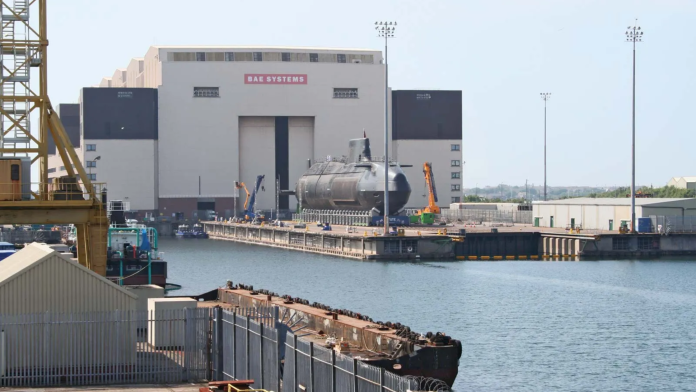UK Opposition Labour Party leader Keir Starmer said he would push for an increase in defence spending to 2.5 percent of GDP “as soon as resources allow” amid growing global threats
The Labour Party has recently been well ahead in opinion polls ahead of elections expected later this year, making such a request to increase defence spending in line with the ruling Conservative Party’s intentions.
Keir Starmer highlighted defence was “the number one issue for any government” in a world where international threats have risen and the situation was “more volatile” than it had been for many years.
On defence spending, obviously we want to get to 2.5% as soon as resources allow that to happen.
He also announced a commitment to Britain’s nuclear deterrent, the Trident-submarine-based missile system, which provides a permanent presence at sea and costs billions of pounds. Starmer stressed:
In the face of rising global threats and growing Russian aggression, the UK’s nuclear deterrent is the bedrock of Labour’s plan to keep Britain safe. It will ensure vital protection for the UK and our Nato allies in the years ahead, as well as supporting thousands of high paying jobs across the UK.
Sir Keir will go to the Barrow-in-Furness shipyard in Cumbria on Friday, where the party says all four new Dreadnought nuclear submarines will be built.
I want to see more homegrown involvement in the nuclear submarine supply chain – and our wider defence manufacturing. With Labour, the defence industry will be hardwired into my national mission to drive economic growth across the UK.
He is the first Labour leader to visit the dockyard in more than 30 years and will talk to workers, union members and apprentices about expanding jobs and skills at the dockyard and in the wider defence industry.
Not only is this about defending our land and our Nato allies, it’s also defending our economy – prioritising British jobs, British skills and much-needed economic growth here on our shores.
Starmer’s position differs from that of previous Labour Party leader Jeremy Corbyn, who opposed Britain’s Trident nuclear weapons system.
The Conservatives, traditionally seen as the party most likely to spend money on defence, promised in March that defence spending would rise to 2.5 per cent of GDP “as soon as economic resources allow,” up from the current level of about 2.2 per cent.
Countless families in Barrow and across Britain have built a secure future over decades of hard work building our defences. I want that to continue for the decades to come.
It costs around £3 billion a year to operate Trident, and the new submarine fleet, which will be commissioned in the early 2030s, is expected to cost £31 billion.
If the Labour Party wins, there will be a review of defence and security spending to make sure priorities are right and to try to tackle wasteful procurement, Starmer told the i newspaper.
